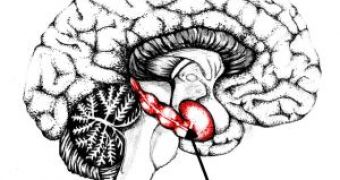In a new study done by researchers at the Translational Genomics Research Institute (TGen) on a sample of over 1,000 young and old individuals from Switzerland and Arizona, a new gene called Kibra linked to memory performance in humans was found.
In this vast research, over 500,000 DNA positions were scanned in order to identify cognitive differences between humans. "Using the latest whole-genome association technologies, we have shed light on the fundamental biological process of human memory performance," said Dr. Dietrich Stephan, Director of TGen's Neurogenomics Division.
"The capacity to remember is a defining feature of humans and we can now use this new understanding to develop drugs that will improve memory function."
After measuring memory performance in cognitive healthy subjects, the researchers, analyzing the DNA, using a whole-genome microarray technology, found a connection between Kibra and memory performance.
Dr. Andreas Papassotiropoulos, professor at the University of Zurich, said "The link between Kibra and memory could lead to new treatments for memory loss and possibly help improve memory in patients with memory disorders such as Alzheimer's disease."
The gene is active in the hippocampus, a brain center critical to the capacity of the memory. "Using sophisticated functional brain imaging techniques, we showed that individuals who had a version of the gene that is related to poorer memory potential had to tax their brains harder to remember the same amount of information," said Dr. Dominique de Quervain, professor at the University of Zurich.
"We're excited about the chance to identify a gene that accounts for some of variation in normal human memory and to use this information in the discovery of promising new memory-enhancing treatments." said Dr. Eric Reiman, executive director of the Banner Alzheimer's Institute.
The gene was noticed by comparing the genetic profile of people with good memory to people with poor memory. Their discovery was confirmed by replicating the Kibra gene in two separate and distinct groups of subjects. "This memory study is a perfect example of how the use of advanced technologies in human genetics yields fundamental discoveries," said Dr. Stephen P.A. Fodor, Chairman and CEO at Affymetrix.
Understanding the processes of memory can finally lead to developing effective medicines against memory loss or memory disorders like Alzheimer's disease.

 14 DAY TRIAL //
14 DAY TRIAL //